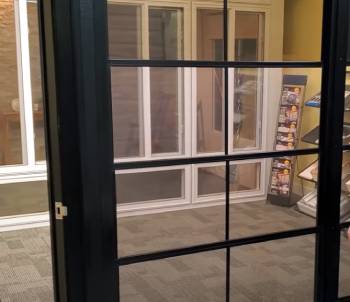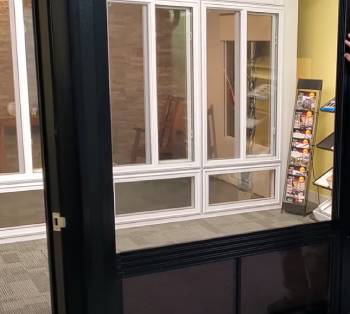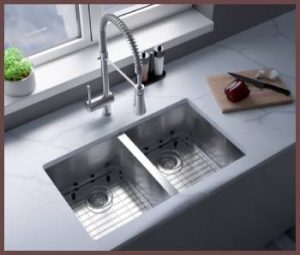You’re browsing the web, sipping on your morning coffee, and suddenly, the phrase “4 Track Vinyl Windows” catches your eye. You’re intrigued and you start to wonder, “Are these the windows I’ve been searching for?”
Well, you’re in luck. Today, we’re breaking down the pros and cons of 4 track vinyl windows and clearing up all your queries.
Step into the World of 4 Track Vinyl Windows
Let’s set the stage by understanding what 4 Track Vinyl Windows are. These windows comprise four individual vents or panels, which slide vertically or horizontally within a sturdy vinyl frame. They allow for varying degrees of openness while offering protection from external elements when completely closed.
The Alluring Pros of 4 Track Vinyl Windows

There are several compelling reasons why homeowners and builders are tilting towards 4 Track Vinyl Windows. Let’s delve into some of their key benefits.
- Superior Energy Efficiency
Vinyl, as a material, is an excellent insulator. Pair that with the innovative 4-track system, and you’ve got a window that stands against the harsh winter chill and the summer heat, helping you save on those pesky energy bills.
- Low Maintenance and Durable
Unlike wooden frames that need regular polishing, vinyl windows are a breeze to maintain. They’re resistant to rust, rot, and termites. Plus, their sturdiness adds years to their life, making them a reliable long-term investment.
- Cost-effective
When you compare the cost of vinyl windows with other materials like wood or aluminum, they come off as significantly more affordable without compromising on performance.
Read More: About Differences Between Western Windows And Fleetwood
The Unavoidable Cons of 4 Track Vinyl Windows

As with everything, 4 Track Vinyl Windows aren’t without their downsides. It’s important to weigh these cons before making your decision.
- Limited Customization
While vinyl windows come in a variety of styles and colors, once installed, they cannot be painted or stained. You’ll be stuck with the original color, which can be a bummer if you like to switch things up.
- Potential for Warping
In extreme temperatures, vinyl windows can warp or become discolored. This is a less common occurrence, but something to consider if you live in an area with severe weather conditions.
- Lower Resale Value
Despite their advantages, vinyl windows often don’t boost your home’s resale value as much as wooden or aluminum windows might.
Frequently Asked Questions (FAQs)
Now that we’ve explored the ins and outs of 4 track vinyl windows, let’s tackle some burning questions.
Despite their affordability and low maintenance, vinyl windows offer limited customization options, may warp in extreme weather, and often don’t increase your home’s resale value as much as other window types.
Prices for EZ Screen windows vary based on size, style, and installation costs. On average, they can range anywhere from $200 to $800 per window.
Vinyl replacement windows are energy-efficient, durable, and cost-effective, making them a good choice for many homeowners. However, they do have limitations in terms of customization and potential impact on resale value.
4 track windows are window systems with four individual panels or vents that slide within a frame. They offer flexibility in terms of how much they can be opened, providing varying degrees of ventilation and protection.
While vinyl windows offer numerous benefits, you might reconsider if you want high customization or live in extreme weather conditions due to the risk of warping and discoloration. Additionally, if boosting your home’s resale value is a priority, you may want to consider other window types.
While vinyl windows might not boost your home’s resale value as much as wooden or aluminum windows, they don’t necessarily decrease it. A home with well-maintained vinyl windows can still be attractive to potential buyers due to their energy efficiency and low maintenance.
Read More: About Garden Window
How Do 4 Track Vinyl Windows Compare to Their Competitors?
Now that we’ve talked about the benefits and downsides of 4 Track Vinyl Windows, let’s compare them with a couple of their main competitors: wooden and aluminum windows.
- Wooden Windows
Wooden windows bring a timeless elegance to any home. They can be painted or stained to match your style, offering limitless customization. Moreover, they insulate well and can significantly boost your home’s resale value.
However, they’re more expensive and require regular maintenance to avoid rot and termites. They’re also not as durable as vinyl windows.
- Aluminum Windows
Aluminum windows are known for their strength and thin frames, allowing for a larger glass surface area. They’re durable, low maintenance, and resistant to rust, making them a popular choice for areas with heavy rainfall.
Nonetheless, they don’t insulate as well as vinyl or wooden windows and can contribute to higher energy bills. Moreover, they can be quite expensive compared to vinyl windows.
Wrapping Things Up
In conclusion, while 4 Track Vinyl Windows may not be the perfect fit for everyone, they offer a balance of energy efficiency, durability, and affordability that makes them a compelling choice. Be sure to weigh their pros and cons, and compare them with other types of windows before making your decision.
And as always, it’s best to consult with a professional to determine the right windows for your specific needs.



